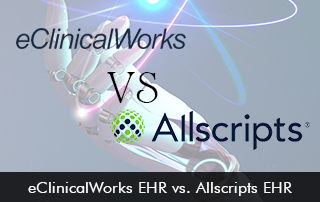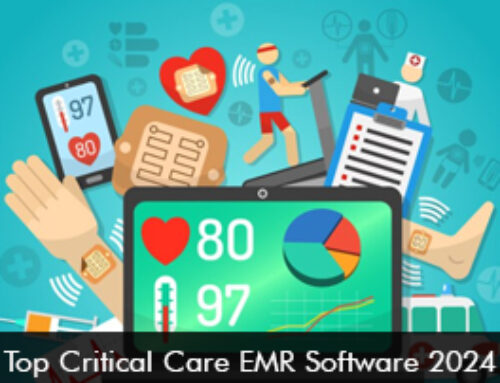EHR (Electronic Health Record) technologies have revolutionized healthcare by improving clinical processes and streamlining patient information management. eClinicalWorks EHR Software and Allscripts EHR Software are two of the leading Electronic Health Records vendors. To assist medical professionals in making an educated decision, this article compares the two in-depth, outlining their similarities and differences as well as their features and advantages.
Company Overview
eClinicalWorks:
- Cloud-based EHR and practice management solution.
- Focuses on patient engagement, telehealth, and population health management.
- Suited for smaller to mid-sized medical practices.
Allscripts:
- Offers EHR solutions for various healthcare settings, from small practices to large organizations.
- Known for user-friendly interfaces and customizable workflows.
- Offers both cloud-based and on-premises solutions.
Specialty
eClinicalWorks:
eClinicalWorks offers EHR (Electronic Health Record) software solutions that cater to a wide range of medical specialties, including:
Primary Care, Family Medicine, Internal Medicine, Pediatrics, Obstetrics and Gynecology, Cardiology, Dermatology, Orthopedics, Gastroenterology, Neurology, Pulmonology, Nephrology, Urology, Rheumatology, Endocrinology, Ophthalmology, Otolaryngology (ENT), Psychiatry, Behavioral Health, Oncology, Radiology and Emergency Medicine
Allscripts:
Allscripts EHR software is designed to serve a wide range of medical specialties, including but not limited to:
Primary Care, Cardiology, Dermatology, Orthopedics, Gastroenterology, Neurology, Pulmonology, Oncology, Pediatrics, Obstetrics and Gynecology, Urology, Psychiatry, Behavioral Health, Ophthalmology, Otolaryngology (ENT), Rheumatology, Endocrinology, Nephrology, Infectious Disease, Emergency Medicine & Radiology.
Features and Functionality
eClinicalWorks:
- Comprehensive EHR, practice management, and billing capabilities.
- Strong emphasis on patient engagement tools, including patient portals and mobile apps.
- Supports telehealth services and remote patient monitoring.
- Integrates population health management and analytics.
Allscripts:
- Wide range of features and customizable templates.
- Practice management with revenue cycle management capabilities.
- Focuses on clinical decision support tools and analytics.
- Supports diverse specialties and care settings.
Interoperability
eClinicalWorks:
- Emphasizes interoperability with integration of Health Information Exchanges (HIEs) and third-party apps.
- Supports industry standards like HL7 and CCD for seamless data exchange.
Allscripts:
- Pioneering interoperability with data exchange across EMR systems, labs, and pharmacies.
- Supports better clinical decision-making through accessible patient data.
User Interface and Ease of Use
eClinicalWorks:
- User-friendly interface with customizable templates.
- Intuitive design for efficient documentation and physician workflow.
Allscripts:
- Offers intuitive navigation and user-friendly interface.
- Customizable workflows for enhanced adoption and streamlined operations.
Pricing and Cost Considerations
eClinicalWorks:
- Offers subscription-based pricing tailored to practice needs.
- Flexibility in selecting plans based on practice size and services required.
Allscripts:
- Flexible pricing models based on organization’s specific needs.
- Customized pricing options for diverse budgets.
Customer Reviews and Satisfaction
eClinicalWorks:
- Positive feedback for features, patient engagement, and user-friendly interface.
- Varied experiences based on implementation and support.
Allscripts:
- Praised for user-friendly interface, customization, and interoperability.
- Satisfaction varies based on individual experiences.
Making the Informed Choice
Take into account your practice’s size, specialty, interoperability demands, and budget while deciding between eClinicalWorks and Allscripts. Both EHR platforms have a wealth of capabilities and advantages that can improve clinical workflows and patient care. Considering your unique needs can help you make an educated choice, whether you value patient involvement, interoperability, or configurable processes. Consider product demonstrations, speak with industry professionals, and match your decision to your practice’s objectives for streamlining healthcare processes and improving patient outcomes.







